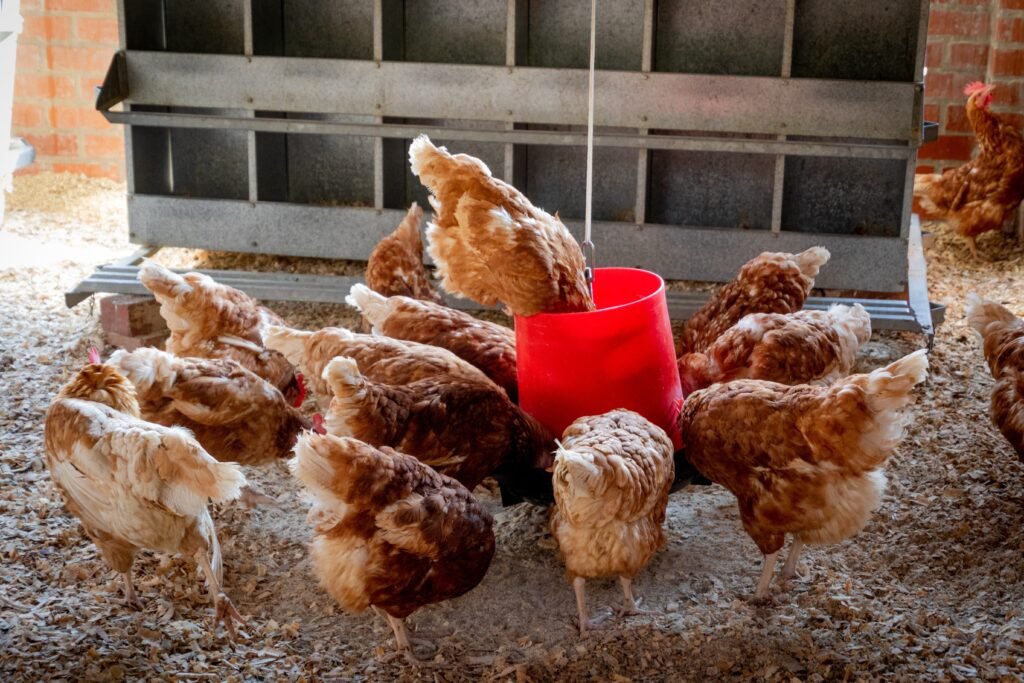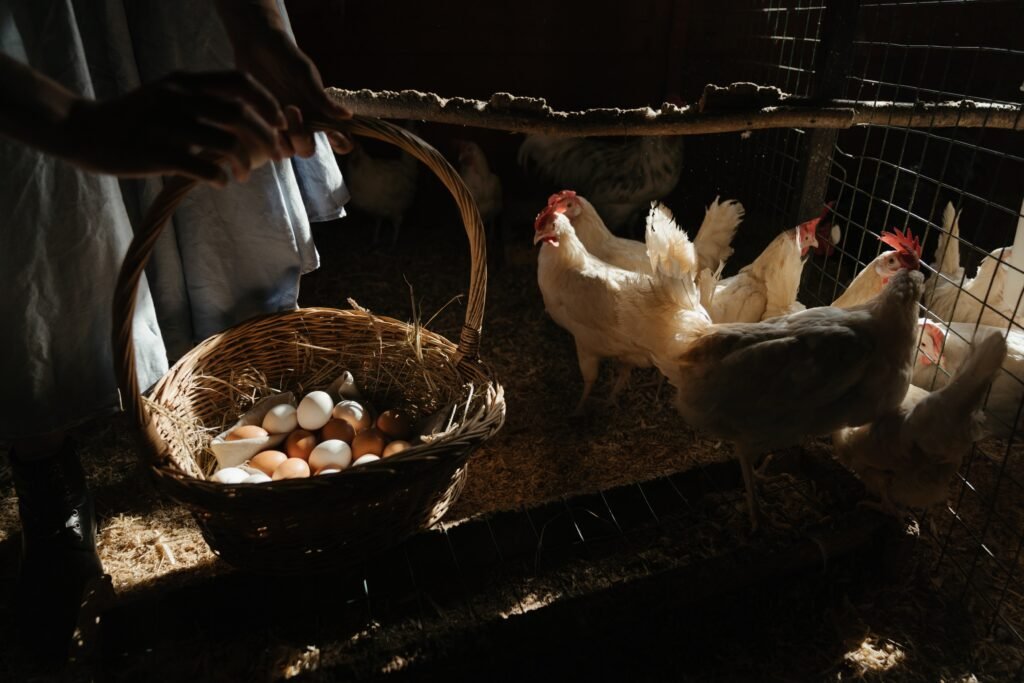How to Care for A Pet Chicken?
Are you interested in having a chicken as your new pet? Why not? Chickens are amazing creatures that help you in your garden to get rid of insects and pests like snails, they’re a source of fertilizer, and you get healthy fresh eggs daily. They also provide excellent company, are fabulous to watch, and are entertaining birds to raise overall. However, before keeping a chicken as a pet, please consider your budget, time, and space that they need. Let us learn how you properly care for the chickens you bring home as your lovely pet.
Professional tips for caring for your pet chicken
Check the rules and regulations of your locality:
Some municipalities will not allow you to keep chickens because they are too noisy or cause a smell. Before you start spending money on chickens and supplies, take the time to search local laws and regulations.
Check you have enough outdoor space:
It’s essential to make sure you have enough outdoor space before you get started. Each coop needs roughly 10 Square feet of outdoor space, enough room to move around and exercise.
Decide on the purpose of your chickens:
Chickens can be kept for eggs or meat, for the show, or just as pets. Whichever purpose you choose, there are plenty of breeds like egg-layers, broilers, and show breeds. It depends upon you. However, selecting bantam-sized chickens for simple pet chickens is clever, as they are smaller and often friendlier than the standard chicken.
Decide the age of the chicken:
Similarly, you can choose between fertilized eggs, chicks, and pullets for laying eggs. If you’re new to keeping chickens, it’s recommended that you purchase some pullets or laying hens instead of young chicks or fertilized eggs. However, incubating your eggs can be a wonderful experience.
Plan to keep at least two chickens to care for your pet:
Chickens are social birds and will get bored, depressed, and lonely if they don’t have a partner to socialize with. However, don’t keep more than one rooster in an enclosure, as they will fight each other and cause serious injuries.

Essential supplies for pet chickens’ habitat
Invest in a good quality coop:
All chickens need a pen that must be well-ventilated, predator-proof, free of drafts, and have plenty of space for your chicken flock. Purchase a good quality chicken coop from a pet store, a farm ranch store, or online. You can also make one at home if you have some knowledge of building things.
Buy durable perches:
Chickens don’t usually sleep on the ground but like to roost at night on perches or on top of nesting boxes.
Purchase or build a few nesting boxes for hens to lay eggs:
Make sure there is at least one nesting box for every four hens, and the boxes are big enough so that your hens can fit in them and have straw bedding.
Add absorbent bedding to the coop floor:
Bedding materials like wood shavings or straws allow you to quickly and easily clean up the chickens’ waste quickly and easily.
Put up a fence made of solid material around the chickens’ enclosure:
Plus, bury the fencing into the ground to stop predators like raccoons, cats, and dogs from digging and getting it.
Purchase feed and water containers:
You can use tubs or bowls as your chickens’ feed and water containers, and for small-sized chickens, buy a feeder and drinker to assist them.
Get a heat lamp if necessary:
Invest in a heat lamp to keep your chicks and chickens warm from cold winds.

Best feed to care for a pet chicken
There are three main types of chicken feed:
- Layer pellets (high in calcium) given to egg-laying hens
- Finisher feed (high in protein) is allocated to meat chickens over six weeks old
- Standard chicken feed can be given to chickens in general.
Chickens can eat a wide range of foods, such as vegetables, fruits, table scraps, bugs, seeds, etc. However, give your chickens limited treats.

Daily chicken Care Routine
Feeding time:
A chicken, on average, consumes up to 120 grams of feed daily. However, there is no general rule on how many times you should feed your chickens.
Water check:
Water is necessary for your chickens’ general health, so ensure they have access to fresh water. Chickens don’t like to drink dirty water, so keep the water clean.
Collecting eggs:
Eggs should be collected two to three times daily, at least once in the morning and the evening.
Observe your chicken:
Please spend some time with your chickens to ensure they’re in good health and exhibiting positive signs like they are active, alert, and have bright eyes and smooth feathers.
Locking up time:
In the morning, let the chickens out of their coop, so they have room to move around outdoors. Then, when the sun sets, lock them up in their cage for the night. When locking the chickens up, count them, so they’re all in the coop.

Weekly Coop cleaning tasks to care for pet chicken
Inspect bedding:
The chickens’ bedding must be replaced daily or weekly as it prevents pests and diseases. Remove the old ones and replace them with new ones to keep the chickens clean and comfortable.
Nest box cleaning:
Hens will lay their eggs wherever they feel safe, so keep your nesting boxes clean. Put on gloves and a mask to clean out the nest boxes weekly or whenever they look untidy.
Sanitize water and feed boxes:
As the water dispenser is constantly used, it’s contaminated with slime and poop. Clean and sanitize the containers using a bleaching solution, soap, and water.
Thoroughly clean and disinfect your coop twice a year!
A thorough coop cleaning helps keep your chicken clean and healthy. This will only take you a few hours to finish!
- Take out all the bedding, nesting materials, feed, and water containers from the chicken coop.
- Use the broom to remove old droppings, feathers, and dirt.
- Clean the chicken coop with a hose and scrub the surfaces and perches using a stiff bristle brush.
- Disinfect the whole coop using a 10% bleaching solution.
- Then open the windows and doors to let everything dry out.
- Add fresh nesting materials and herbs for your chickens to enjoy.
Note: Inspect the coop every six months to see if any pieces need to be replaced or fixed or if the coop size is compatible with the size of the chicken flock in order to properly care for your pet chicken.
Seasonal pet chicken care
Winter care
- Apply petroleum jelly or another rich moisturizer to combs and wattles every few days to prevent frostbite.
- Purchase heaters for the feeders and the waterers to prevent the water supply from freezing! This is critical because hens cannot survive without access to fresh water.
- Don’t overheat your chicken coop because birds adapt to the cold over time. The hens will never grow acclimated to the colder outside temperature if you heat the cell, so if the heat goes out, causing a sudden temperature change, you could lose your entire flock overnight.
Summer care
To keep the chicken coop cool, you need to provide shade outside and as much ventilation as possible and wisely utilize cold water and ice. Diet the birds with their regular feed on hot days and avoid carbohydrate-rich foods, such as scratches, as they will make the chickens feel warmer.

Other tips to care for a pet chicken
Dust bathing:
Provide dry dirt or sand for your chickens to dust and bathe in. Dust bathing is a way your chickens clean themselves and prevents parasites such as mites or lice from infesting your chickens.
Chicken grooming:
Grab a big enough tub, a mild soap, and a cup or sponge. While bathing them, you might trim their beaks and nails and clip their wings too. Most roosters have ‘spurs’ at the back of their legs, which they will use on you if they feel threatened; trim them off.
Chicken sitter:
If you go away from home for more than the day, find a local chicken sitter in your area to look after your chickens while you’re away.
Throw away any moldy food:
Don’t leave food to rot or go moldy. If the chickens eat stale food, they are at risk of dying.
Look into “howtothing.net” detailed pages about care for dogs, cats, hamsters, horses, and birds to get more information.
